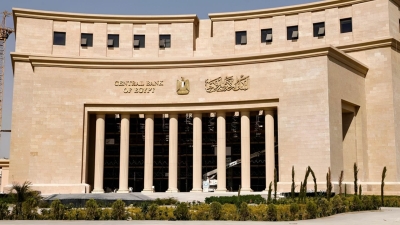MPC decides to keep key policy rates unchanged

In its meeting today, the Central Bank of Egypt’s Monetary Policy Committee (MPC) decided to keep the CBE’s overnight deposit rate, overnight lending rate, and the rate of the main operation unchanged at 27.25 percent, 28.25 percent, and 27.75 percent, respectively.
The Committee also kept the discount rate unchanged at 27.75 percent. The decision reflects recent developments and outlook at the global and domestic levels since the previous MPC meeting.
Globally, monetary policy tightening cycles in advanced and emerging market economies have contributed to a decline in inflation worldwide, with select central banks gradually cutting their policy rates, albeit maintaining a restrictive stance to sustain disinflation towards targeted levels.
While economic growth is broadly stable, its outlook remains subject to downside risks such as the dampening effect of monetary tightening on economic activity, geopolitical tensions, and possible resurgence of protectionist policies.
In addition, while the forecast for global commodity prices, notably energy, has mostly moderated, upside risks to inflation remain, as commodity prices continue to be susceptible to supply shocks such as global trade disruptions and adverse weather conditions.
Domestically, leading indicators for Q3 2024 point to real GDP growing at a faster pace compared to the 2.4pe rcent recorded in Q2 2024.
Projections for Q4 2024 show that while economic activity continues to pick up, estimates indicate that real GDP remains below potential, thereby supporting the expected disinflation path over the short term, and is forecasted to recover by FY 2024/25.
Meanwhile, the unemployment rate ticked up marginally to 6.7 percent in Q3 2024 compared to 6.5 percent in Q2 2024, as the pace of employment creation fell short of absorbing new entrants into the labor market.
Annual headline inflation remained broadly stable for the third consecutive month, at 26.5 percent in October 2024, mainly driven by the administered prices of non-food items such as liquefied petroleum gas (LPG) and pharmaceuticals.
This aligns with annual core inflation slightly declining to 24.4 percent in October 2024 against 25.0 percent in September 2024. It is also consistent with the unwinding of annual food inflation, which reached 27.3 percent in October 2024, the lowest rate in two years.
These outturns along with the improvement in inflation expectations, as reflected by the gradual normalization of monthly inflation dynamics, suggest that inflation will continue its declining course, subject to the impact of successive rounds of administered price increases.
Looking ahead, inflation is expected to persist near current levels till end of 2024 with the balance of risks still tilted to the upside.
These risks include geopolitical tensions, possible trade protectionism, and higher than anticipated pass-through of fiscal measures. Nevertheless, inflation is projected to ease appreciably starting Q1 2025, as the cumulative impact of monetary policy tightening and favorable base effect materialize.
Considering developments at the domestic and global levels, the Committee views the current monetary policy stance as appropriate until a significant and sustained decline in inflation materializes.
The MPC will continue to follow a data-driven approach to determine the duration of policy restrictiveness based on its assessment of the inflation outlook, dynamics of underlying inflation, and strength of monetary policy transmission.
The Committee will continue to closely monitor economic and financial developments and assess their implications for Egypt’s economic outlook and will not hesitate to utilize all tools at its disposal to rein in inflationary pressures.













